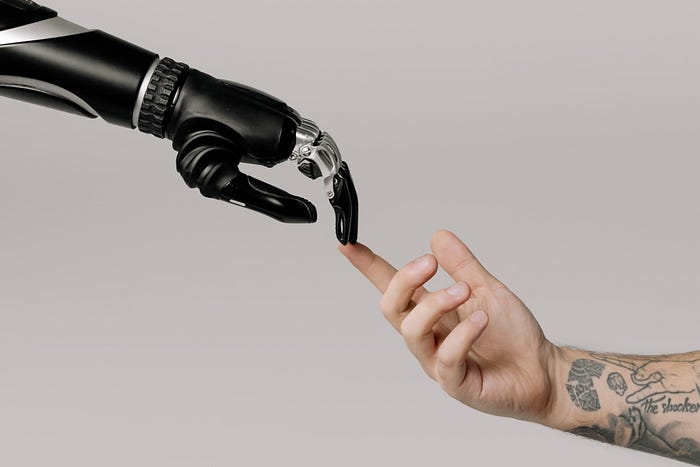What Are the Types of Artificial Intelligence? Unraveling the AI Mind

Key takeaways
- There are four main types of artificial intelligence
- We have reactive machines and limited memory models, but theory of mind and self-awareness are still the stuff of science fiction
- For investors, Google, Microsoft and Nvidia gains have proven AI is the new frontier for Wall Street
There’s been an explosion of interest in AI since ChatGPT was unveiled to the world just six short months ago. Since then Big Tech has worked tirelessly to outsmart one another and we’re benefiting from increasingly sophisticated AI tech. But what exactly makes up artificial intelligence, and how can it benefit investors? Read on to find out.
Want to use AI to invest in AI and other cutting-edge tech? Q.ai’s Emerging Tech Kit includes tech stocks and ETFs in its holdings, powered by an AI algorithm to scan the data and find the top performers each week. The AI then adjusts the holdings as needed to help you stay ahead of the curve.
Download Q.ai today for access to AI-powered investment strategies.
What are the different types of AI?
Reactive machines are the most basic type of AI, as they only focus on current scenarios and don’t store information, or know any history. An example of this AI is IBM’s Deep Blue supercomputer, which beat chess grandmaster Garry Kasparov in 1997. A more recent version of reactive machines would be DeepMind’s AlphaGo system and even ChatGPT.
The step up is limited memory, which can learn from historical data to make decisions. They can only use said data for a short period of time, which makes them helpful in developing self-driving technology for vehicles.
Then we get into science fiction territory (though plenty of AI safety specialists think advancements are coming sooner than we think) with the theory of mind. This is where an AI would understand human emotions and be able to interact with humans like it was one. It would involve complex decision-making, marking a massive breakthrough in the field.
The final step and most advanced type of AI is self-awareness, or artificial general intelligence (AGI). This is the ultimate form of AI, where it’s developed its own consciousness and would quickly outpace human intelligence — scary stuff, should AI continue to develop without oversight.
What does AI mean for investors?
AI has both brilliant opportunities and perils for investors, some of which we’ve seen just this week.
We’re already seen significant gains in the market from companies betting big on AI. Microsoft, which has its own Microsoft Bing chatbot and looks to grow its search engine market share with AI, has grown its share price by nearly 34% this year since it invested in OpenAI.
Its competitor Google has seen a similar lift, with its share price climbing nearly 39%. These two companies have been the most involved, aside from Nvidia, which has soared a whopping 117% in the same timeframe. It’s proof there are potentially colossal investing wins to be had with the AI industry in the coming years.
Conversely, an AI-generated image of an explosion at the Pentagon soon went viral on social media, with markets reacting in kind: the S&P 500 quickly dipped by 0.26% before recovering once the image was revealed to be fake. It’s a warning that traders must be concerned about falling for these types of images and what kind of protections should be implemented to protect the markets.
The bottom line
The AI revolution has accelerated in recent months, but at the same time, it’s humbling to know an AI as impressive as ChatGPT (or, ahem, Q.ai) is only on the first rung of artificial intelligence. Investors will be keen to see how companies harness and develop the tech — so long as the proper guardrails are in place.
Fight off recession fears by opening a new investing income stream. Q.ai’s Recession Resistance Kit uses AI to find the top-performing recession-proof stocks, then readjusts the holdings’ funds as required to help you build wealth.
Download Q.ai today for access to AI-powered investment strategies.
